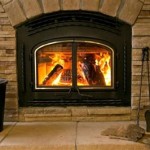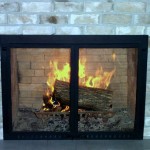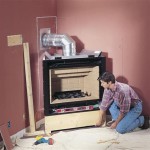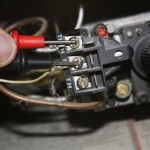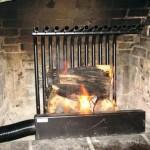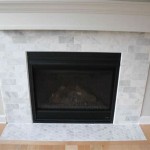Ethanol Fireplaces: A Balanced Examination of Pros and Cons
Ethanol fireplaces have gained considerable popularity as a contemporary heating and decorative solution for homes and apartments. Fueled by bio-ethanol, a renewable alcohol produced from plant biomass, these fireplaces offer a visually appealing alternative to traditional wood-burning or gas fireplaces. However, potential consumers should carefully weigh the advantages and disadvantages before making a purchase. This article provides a comprehensive overview of the pros and cons associated with ethanol fireplaces.
Aesthetic Appeal and Design Versatility
One of the primary advantages of ethanol fireplaces lies in their aesthetic flexibility. Unlike traditional fireplaces that require chimneys and complex venting systems, ethanol fireplaces can be installed in a wide variety of locations. This is due to the fact that they do not produce smoke, soot, or harmful emissions that necessitate external ventilation. This freedom opens up numerous design possibilities, allowing homeowners to integrate a fireplace into spaces where it would have been previously impossible.
Ethanol fireplaces are available in a wide array of designs, ranging from freestanding units to wall-mounted models and even inserts that can be incorporated into existing fireplace openings. Their sleek and modern appearance complements contemporary interior design styles, adding a touch of sophistication to any room. The absence of a traditional hearth and chimney allows for clean lines and minimalist aesthetics. The visible flame, often dancing directly within a glass enclosure, creates a captivating focal point.
Furthermore, ethanol fireplaces offer customization options. Consumers can often choose from various finishes, including stainless steel, black, and white, to match their existing décor. Some models also feature adjustable flame heights, allowing users to control the intensity of the heat and the ambiance of the room. This adaptability makes ethanol fireplaces a desirable choice for homeowners seeking a stylish and easily integrated heating solution.
The portability of many ethanol fireplace models is another significant advantage. Freestanding units can be moved from room to room, allowing for on-demand ambiance and supplemental heat wherever desired. This flexibility is particularly appealing for renters or individuals who frequently rearrange their living spaces.
Environmental Considerations and Fuel Efficiency
Ethanol fireplaces are often marketed as an environmentally friendly alternative to traditional fireplaces, and there is some truth to this claim. Bio-ethanol is produced from renewable resources, such as corn, sugarcane, or other plant materials. The combustion of bio-ethanol produces primarily carbon dioxide and water vapor, significantly reducing greenhouse gas emissions compared to the burning of fossil fuels or wood.
However, it's important to acknowledge that the environmental impact of ethanol production can vary depending on the source of the biomass and the manufacturing processes involved. The cultivation of crops for ethanol production can contribute to deforestation, soil erosion, and the use of pesticides and fertilizers. Sustainable sourcing of bio-ethanol is crucial to minimizing its environmental footprint.
In terms of fuel efficiency, ethanol fireplaces are generally less efficient than gas or wood-burning fireplaces. The heat output of an ethanol fireplace is typically lower, and the cost of bio-ethanol fuel can be relatively high compared to natural gas or firewood. The burn time per liter of fuel varies depending on the model and flame setting, but it is generally shorter than that of other types of fireplaces. Consumers should carefully consider the cost of fuel and the heat output when evaluating the overall efficiency of an ethanol fireplace.
Despite these limitations, the reduced emissions and renewable fuel source of ethanol fireplaces offer a more sustainable option for those seeking a decorative heating solution. When combined with responsible sourcing practices, ethanol fireplaces can contribute to a smaller carbon footprint compared to traditional alternatives.
Safety Concerns and Operational Considerations
While ethanol fireplaces offer aesthetic and environmental benefits, safety remains a paramount concern. The use of flammable liquid fuel necessitates strict adherence to safety precautions to prevent accidents and injuries. It is crucial to only use bio-ethanol fuel specifically designed for fireplaces and to avoid using other flammable liquids.
Refilling the fuel reservoir should only be done when the fireplace is completely cool and the flame is extinguished. Spilling fuel can create a fire hazard, so it is essential to use a funnel and wipe up any spills immediately. Never attempt to refill the fuel reservoir while the fireplace is burning or still hot. Keep children and pets away from the fireplace to prevent accidental contact with the flame or hot surfaces.
The combustion of ethanol produces carbon dioxide, and while the levels are generally low, it is important to ensure adequate ventilation in the room. Opening a window or door can help to prevent the buildup of carbon dioxide and ensure proper air circulation. Carbon monoxide detectors are generally not needed because ethanol fireplaces do not produce significant amounts of this gas like incomplete combustion in wood or gas fireplaces might, however it is always good practice to have one for general home safety.
The quality and construction of the ethanol fireplace are also crucial factors in ensuring safety. Opt for models that meet recognized safety standards and are made from durable, heat-resistant materials. Regular cleaning and maintenance are necessary to prevent the buildup of residue and ensure that the fireplace operates safely and efficiently. Inspect the fuel reservoir and burner regularly for any signs of damage or leaks.
Beyond safety, operational considerations include the availability and cost of bio-ethanol fuel. While bio-ethanol is becoming more widely available, it may not be readily accessible in all areas. Purchasing fuel online or from specialty retailers may be necessary, which can add to the overall cost. The price of bio-ethanol fuel can fluctuate depending on market conditions, so it is important to factor this into the long-term cost of owning an ethanol fireplace.
The heat output of ethanol fireplaces is generally lower than that of traditional fireplaces. While they can provide supplemental heat to a small room, they are not designed to be the primary source of heat for a large space. Consider the size of the room and the desired level of warmth when choosing an ethanol fireplace. Some individuals may find the heat output insufficient for their needs, particularly during colder months.
Finally, the flame produced by an ethanol fireplace is often less realistic than that of a wood-burning fireplace. While the visible flame can be aesthetically pleasing, it may lack the crackling sounds and smoky scent that many people associate with traditional fireplaces. Consumers seeking a more authentic fireplace experience may be disappointed by the artificial nature of the flame in an ethanol fireplace.

The Pros Cons Of Ethanol Fireplaces

The Pros Cons Of Ethanol Fireplaces

The Pros Cons Of Ethanol Fireplaces
:max_bytes(150000):strip_icc()/Ethanol-Fireplace-via-smallspaces.about.com-56a889795f9b58b7d0f3278c.jpg?strip=all)
Using An Ethanol Fireplace In A Small Home

Ethanol Fireplace Pros Ultimate Guidebook For Fireplaces

Wood Vs Bio Ethanol Fires Advantages Disadvantages Blog
:max_bytes(150000):strip_icc()/wall_fire-56a8869d5f9b58b7d0f311b0.jpg?strip=all)
Using An Ethanol Fireplace In A Small Home

Is A Bioethanol Fireplace Part Of Your Dream Home

Ethanol Fireplaces Le Electric Elementi Dimplex

Are Ethanol Fireplaces Safe For An Apartment Modus

